Can solar panels on highways accelerate the supply of green energy?
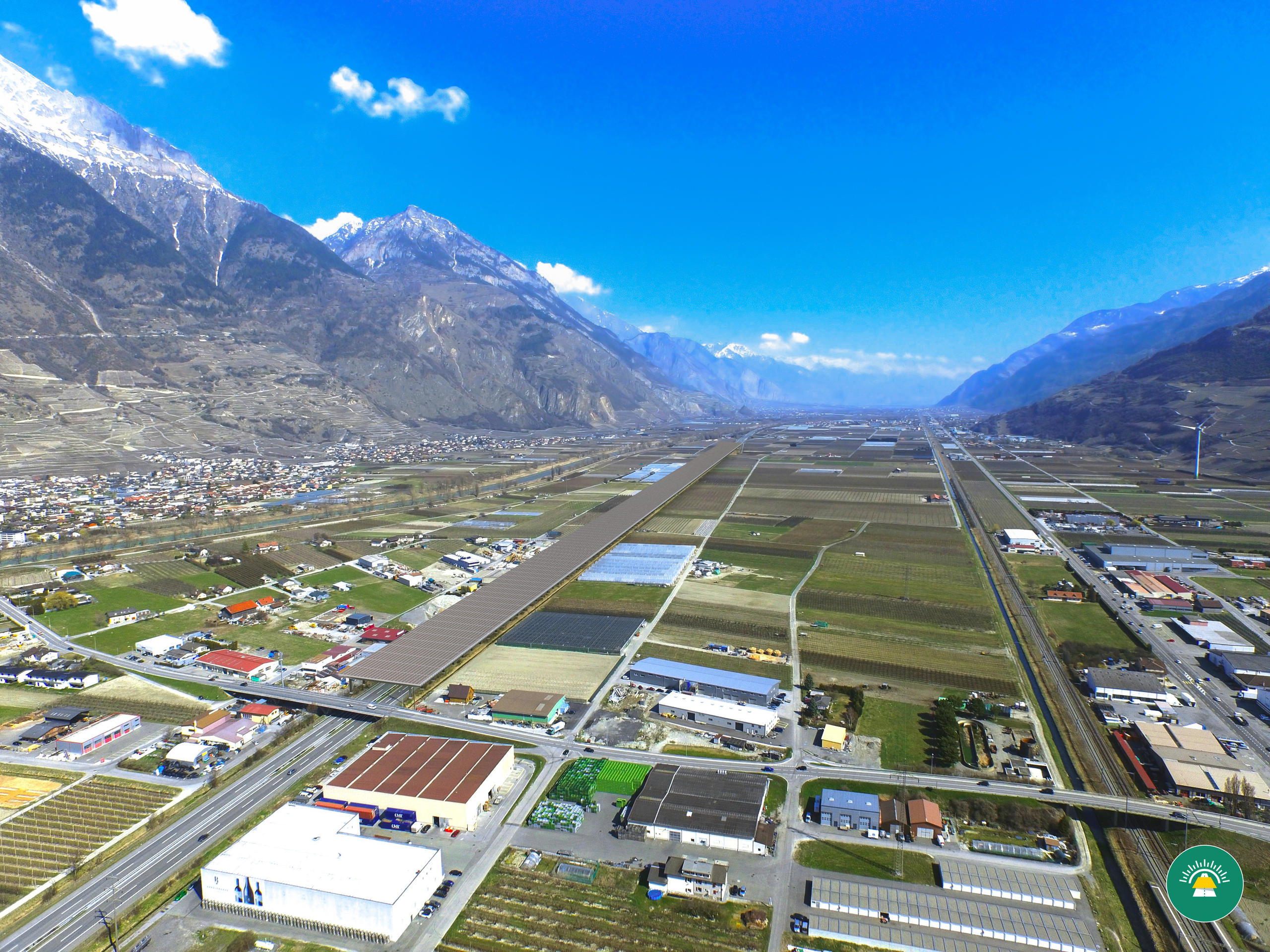
Switzerland needs to boost the uptake of solar power to achieve net-zero emissions by 2050. Covering motorways with solar panels sounds like an ideal solution. But getting such a scheme off the ground in the Alpine country remains an uphill battle.
Laurent Jospin, the boss of Energypier, a Swiss renewables start-up has a vision: on the motorway that snakes through the Rhône Valley in canton Valais solar panels and small wind turbines generate green energy in the fight against climate change.
The location and conditions are perfect for one of his solar highway pilot projects, he insists. Valais, with its sun-drenched terraced vineyards and fertile orchards, is after all one of the sunniest regions in Switzerland.
“I fear we are heading towards a really serious climate situation. Right now, we’re not taking the right path. I have children and I believe it’s my duty to do something,” he tells SWI swissinfo.ch.
The entrepreneur wants to install 47,000 solar panels on open canopy metal structures over a 1.6 kilometre (1 mile) stretch of the A9 motorway at Fully, near Martigny, to produce electricity for 12,000 households a year. Energypier is planning a similar pilot scheme on 2.5km of motorway near Zurich for 20,000 households. In a secondary phase, he wants to install small vertical wind turbines next to the structures.
Jospin is convinced he can multiply his projects across the country to help boost renewables.
The Swiss authorities are committed to achieving net-zero CO2 emissions by 2050. Solar power is one of the main planks of this strategy. Renewable energies must meet the growing demand for electricity as nuclear power plants are being decommissioned. The authorities want 34 terawatt hours (TWh) of solar-generated electricity a year by 2050 (2.6TWh were generated in 2020). Yet implementing solar projects is easier said than done.
Jospin, who runs the young start-up that employs ten staff alongside his traditional solar, real estate and finance businesses, has been battling to realise his dream for over 12 years. His solar highways project has met endless administrative hurdles and questions from communal, cantonal and federal authorities.
“It’s quite complex – the usual Swiss administrative millefeuille [multi-layered] cake,” he jokes.
In 2018, the Federal Roads Office finally approved the use of the motorway. He may need another two years before he sees his panels line part of the A9 motorway.
“They saw the interest, but they were always worried about building something over the roads,” he explains. The authorities were concerned about the panels or parts of the structure falling on vehicles or drivers get distracted.
Installing panels on existing building roofs and facades in Switzerland offers more than enough potential to meet growing needs for solar energy – at least on paper. They could provide 50TWh and 17TWh, respectively, says the Federal Energy Office. But the government says other “complementary” options like solar panels on highways are needed and it is ready to make motorway infrastructure freely available to private firms like Energypier.
Funding difficulties
While many of the initial obstacles to Jospin’s plans were about safety and legal issues, it has been difficult to find investors for his innovative CHF50 million project. The good news is that the company is now in negotiations for a major funding contract.
But there are still several hurdles to cross. The project itself must be accepted into the canton’s main infrastructure plan, and he’ll need a building permit. If things go to plan, construction work may begin in autumn 2022 and the first solar-powered project at Fully would then be ready by the end of 2023.
Elsewhere in Europe, the Netherlands, Belgium, GermanyExternal link and Spain are considering similar projects. Photovoltaic road surfaces have also been trialled in France and the United States.
Panels on noise barriers
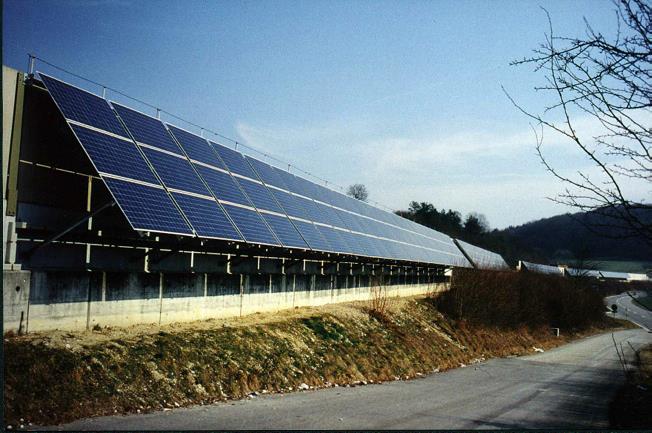
Energypier’s first pilot project coincides with a Swiss government decisionExternal link to adapt legislation to encourage the fixing of solar panels to noise barriers – structures made of concrete, steel, wood and other materials – along highways and railway lines. In theory, these could produce 100 gigawatt hours (GWh) of electricity a year – 55GWh from roads and 46GWh from railways – or enough for 20,000 households.
There are already 10 such installations along Swiss motorways and they exist in a handful of other countries (see graphic below). A new project is being planned near Locarno in canton Ticino.
While the sound barriers concept sounds promising, numerous constraints limit their overall impact in the densely populated country.
“The exploitable potential of these noise barriers only represents 0.15% of the national potential of roofs and facades,” says the Federal Council in a recent reportExternal link.
Safety rules strictly regulate where such panels can be erected. Solar noise barriers are CHF30,000 more expensive than traditional installations due to additional studies and procedures. If not correctly oriented, solar panels on noise barriers can reflect rather than absorb the noise of vehicles. And panels are susceptible to theft and vandalism and are often criticised by conservation groups.
Despite the difficulties, Jean-Louis Scartezzini, a solar energy expert at the Federal Institute of Technology in Lausanne (EPFL), believes these kinds of solar projects are worth pursuing.
“We need to use all available surfaces in a clever way, whether it is on motorways or along railways,” he tells swissinfo.ch. He points out that the first noise barriers with solar panels were set up in canton Graubünden in 1989 and that there is no reason the idea should not be revisited using modern technology.
Innovative but slow and complicated
Switzerland is one of the most innovative countries when it comes to solar energy, as witnessed by its top research institutions and ground-breaking projects like the Solar Impulse airplane. But solar power struggles to break through at the national level and Switzerland lags behind most European countries. Last year, nearly 50% more solar panels were erected compared to 2019, but the 100,000 solar installations cover only 4.7% of Switzerland’s entire energy consumption. The industry body Swissolar said in July that the number of installations would have to increase 15-fold to meet renewable energy targets.
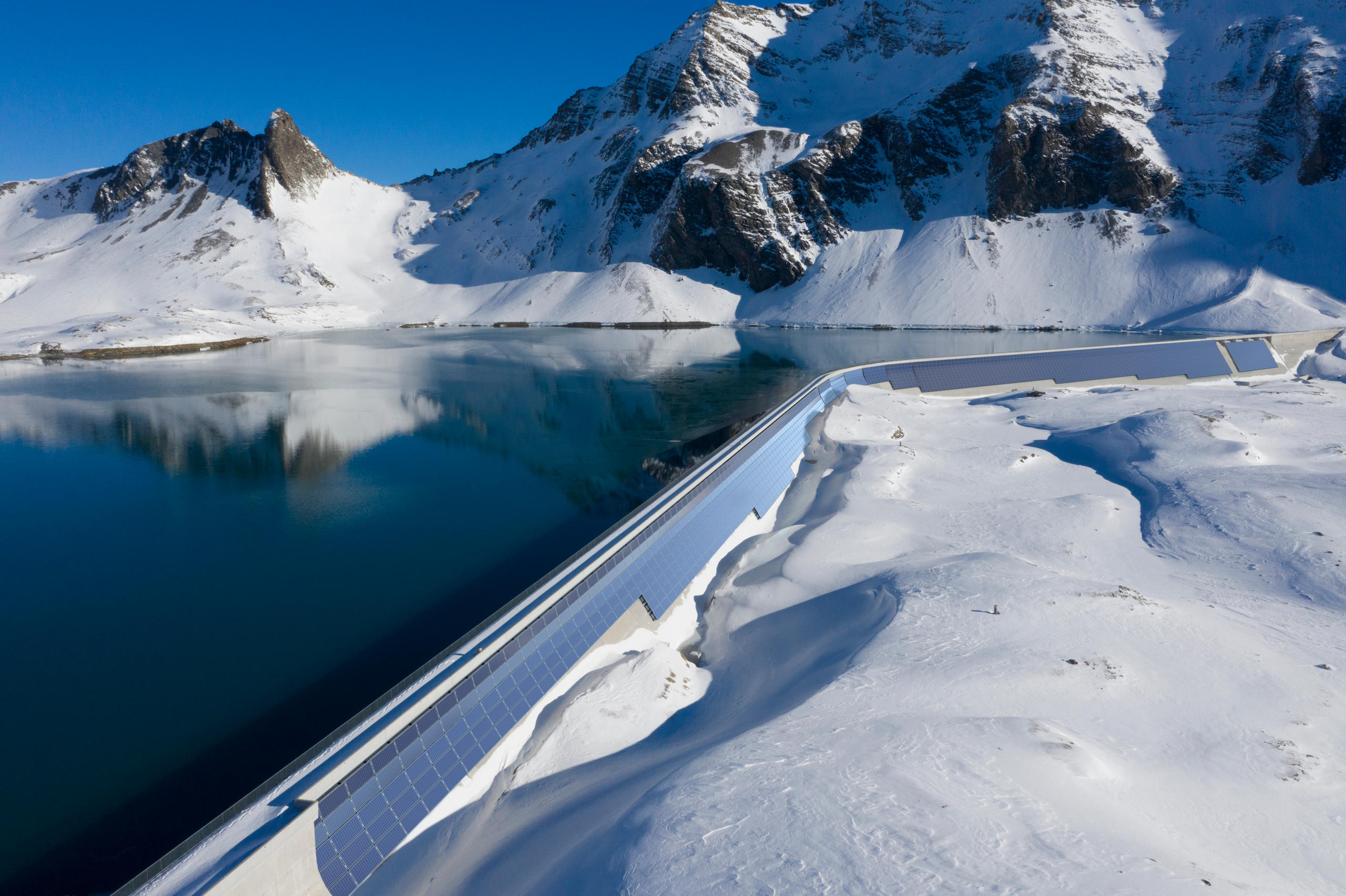
More
Switzerland builds biggest Alpine solar plant
The federal authorities insist they are doing a great deal, especially via proposed changes to the law. The government made available CHF470 millionExternal link this year to encourage small and large solar installations and says it is simplifying procedures. From next year changes to Swiss energy lawExternal link, such as financial incentives to encourage large solar installations and panels on facades, should boost numbers.
Scartezzini believes state support for solar projects is still far too slow.
“They are trying to find a way to speed things up,” he said. “But it’s a question of priorities.”
He believes half of the solar power that Switzerland needs to build up by 2050 could be achieved using just 2% of flat roofs if implemented effectively.
Panels on houses and buildings
Cheaper, higher performance batteries for storing green energy at home should also encourage more people to install solar panels for their own electricity needs, according to the Swiss authorities.
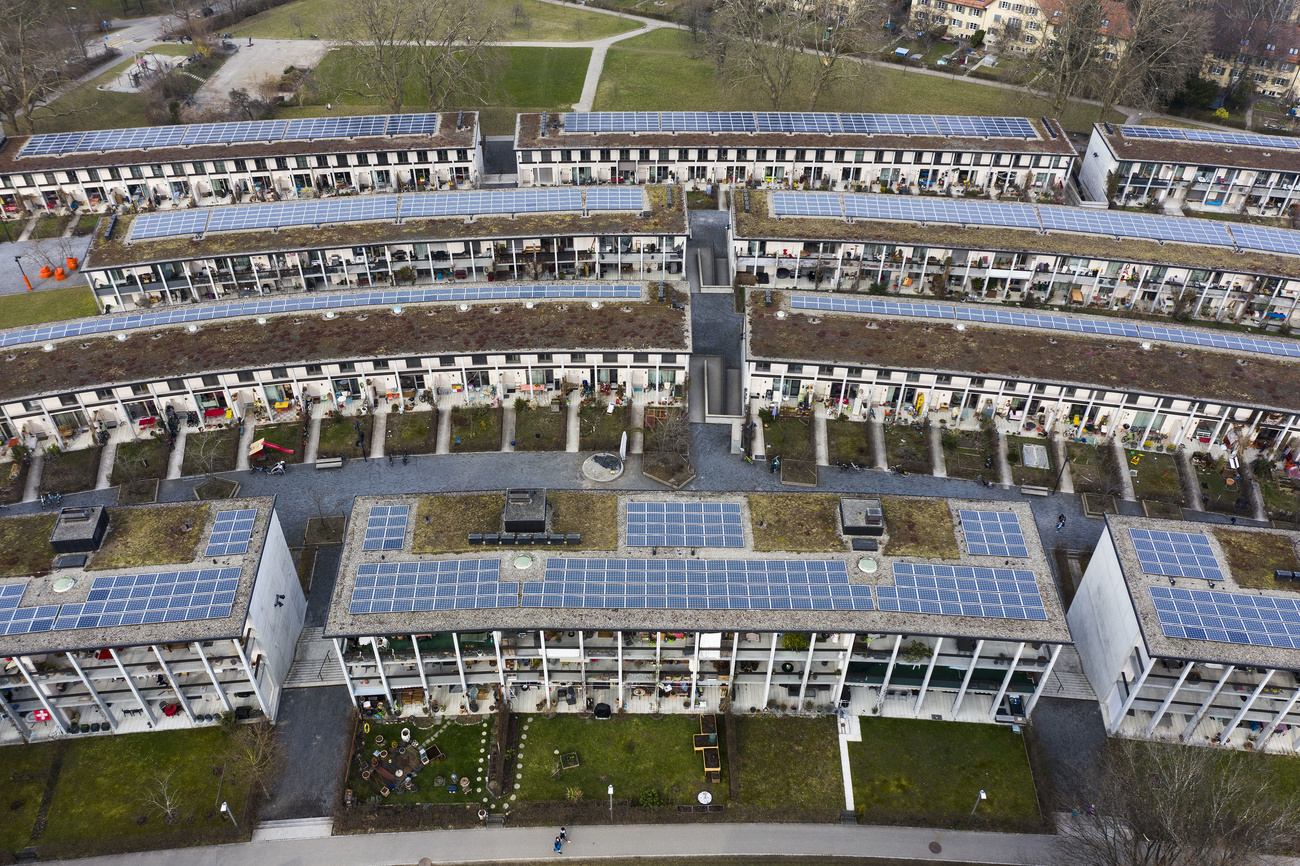
This may work for private homeowners and businesses. Large firms are reportedlyExternal link drawing up zero-carbon strategies and installing solar panels on new buildings. But fixing them to old buildings and apartments that also need renovating is complex.
For Jospin, the idea that panels on building roofs can solve the energy supply question is illusory.
“You’re never going to get someone to install a solar installation, which has a 30-year lifespan, on a roof that has a 15-year lifespan,” he says.
In this regard, the Swiss are more conservative and cautious than their European neighbours, he adds.
“They want to be sure what they are doing when installing solar amid all the technical changes,” says the Swiss entrepreneur.
“Yes, we can put more solar panels on the roofs of apartments, supermarkets and buildings, but we’ll never manage to install everything that’s needed in Switzerland.”
He is confident that his solar highways scheme is the answer.
“Once we’ve done the first one and resolved the problems and shown how it works and how the process is defined, things will really go much quicker,” says Jospin.
Depending on the success of the pilots, Energypier estimates that their solar structures coupled with small wind turbines could be installed on 100-700km of Swiss roads, generating between 2.45TWh and 25.48TWh of green power every year.
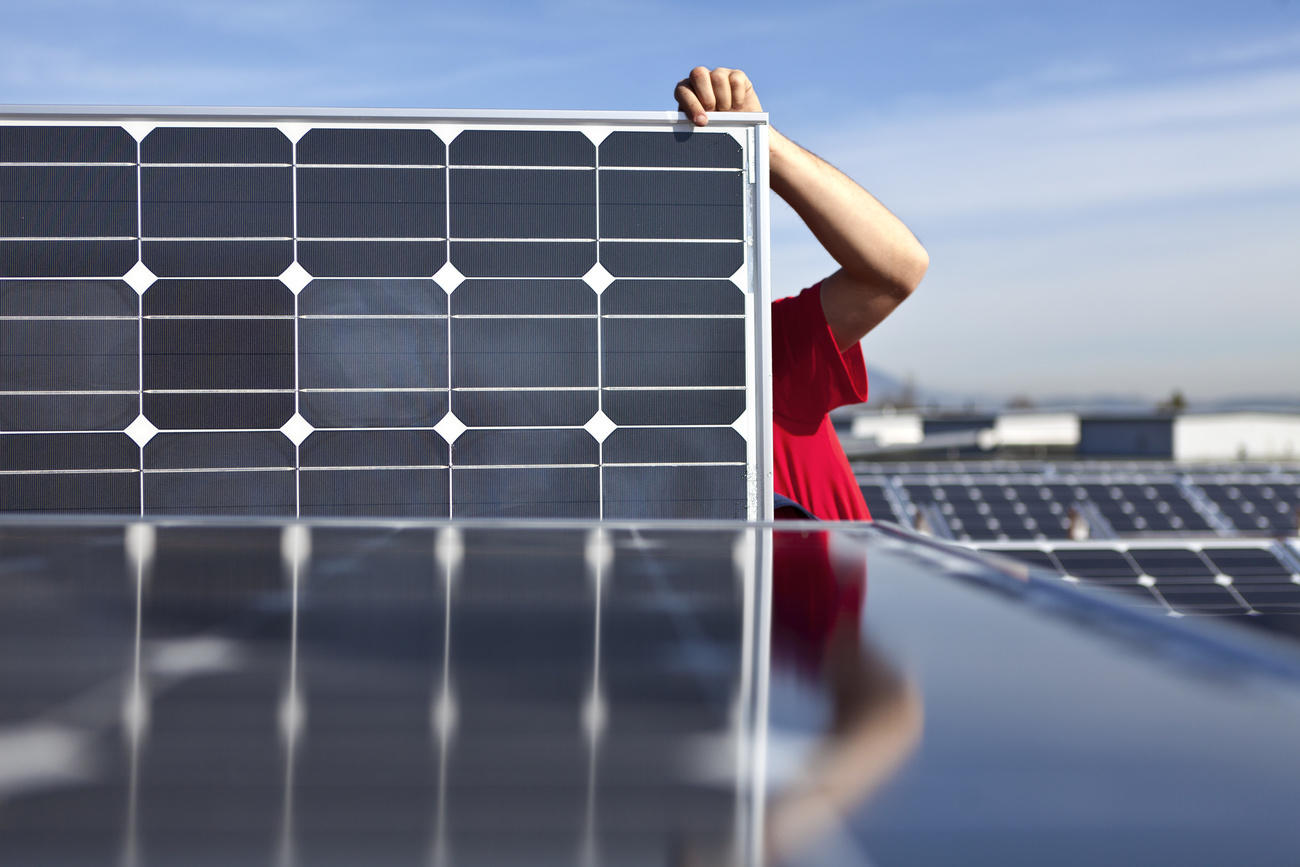
More
Why is solar power struggling to take off in Switzerland?
More

In compliance with the JTI standards
More: SWI swissinfo.ch certified by the Journalism Trust Initiative









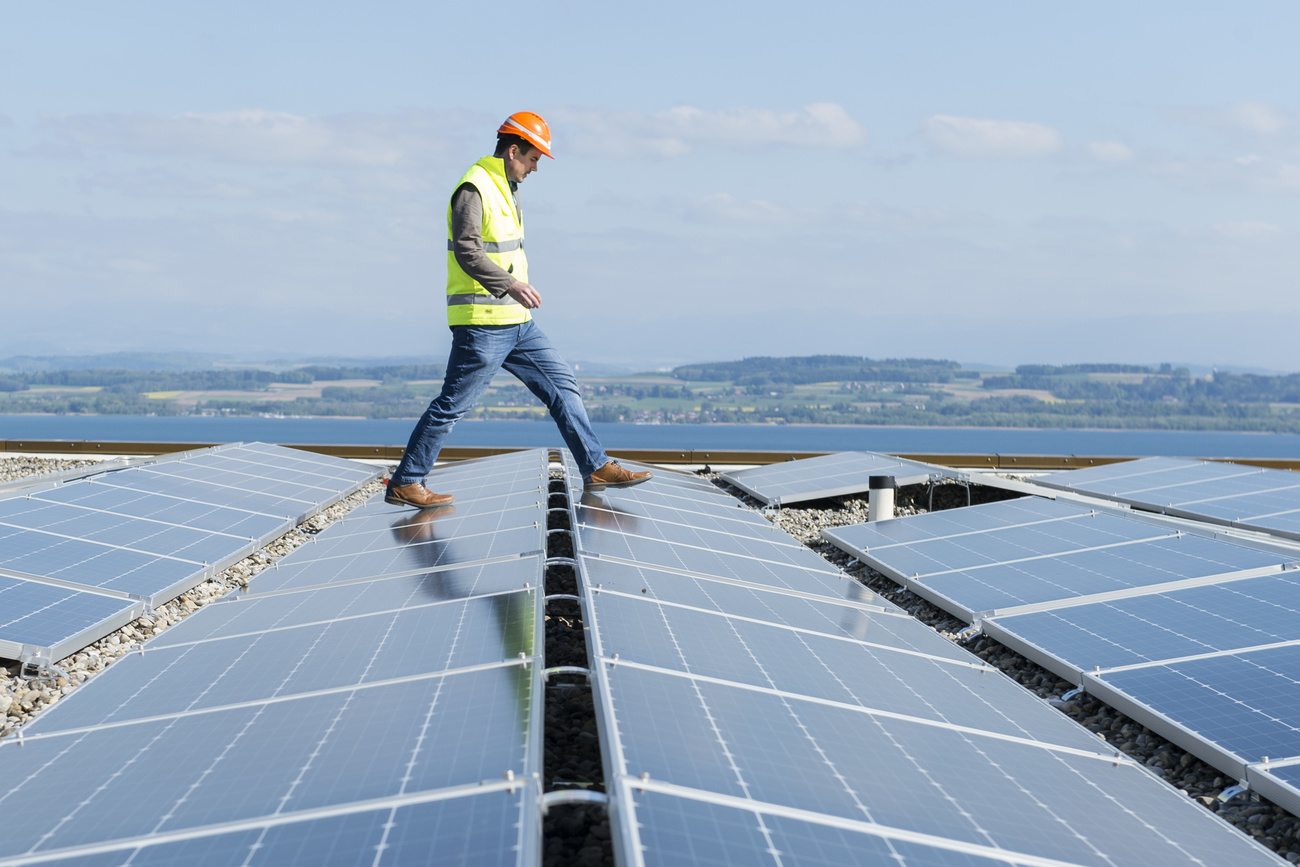

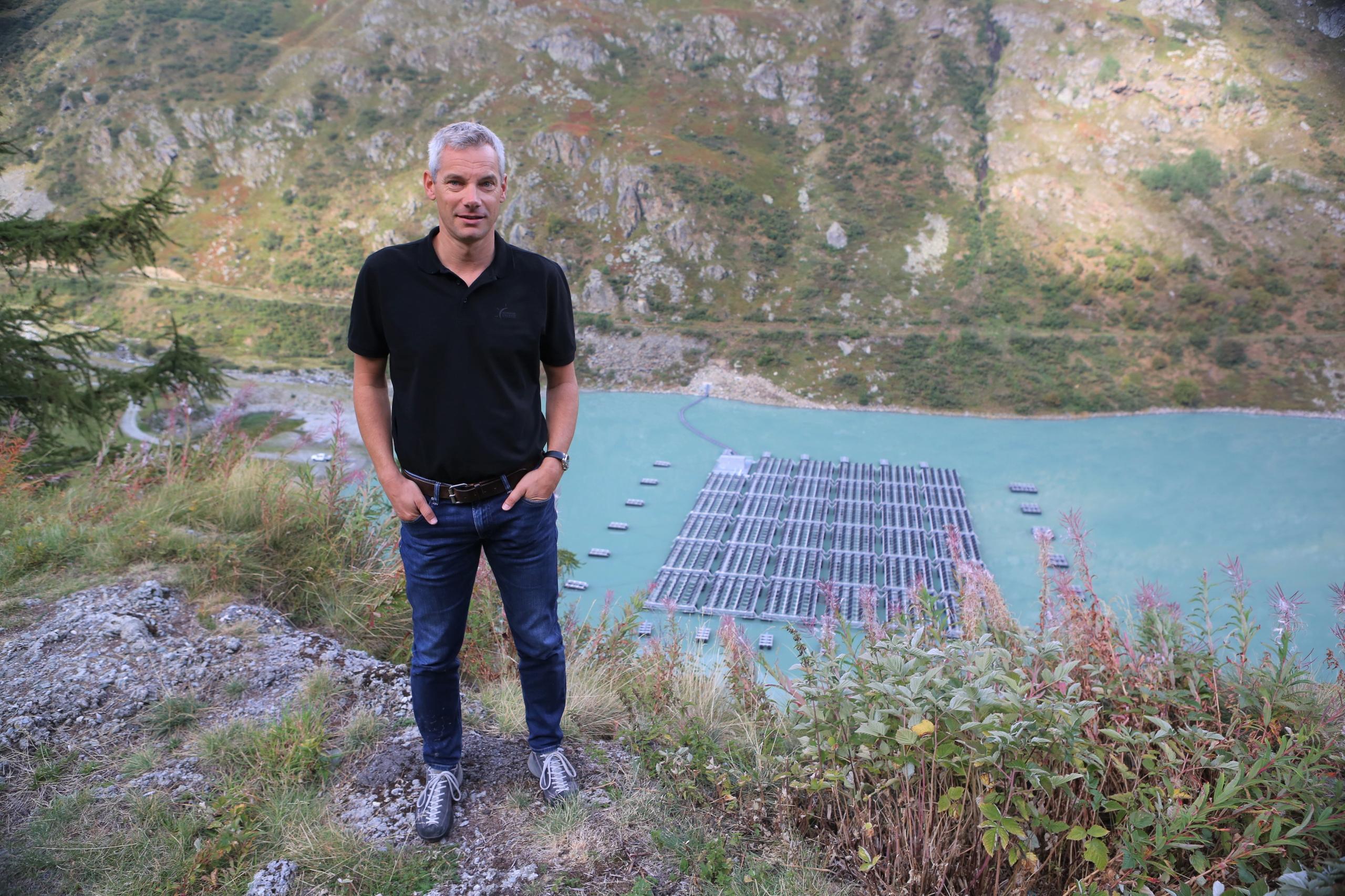
Join the conversation!